ART BEYOND THE HORIZON
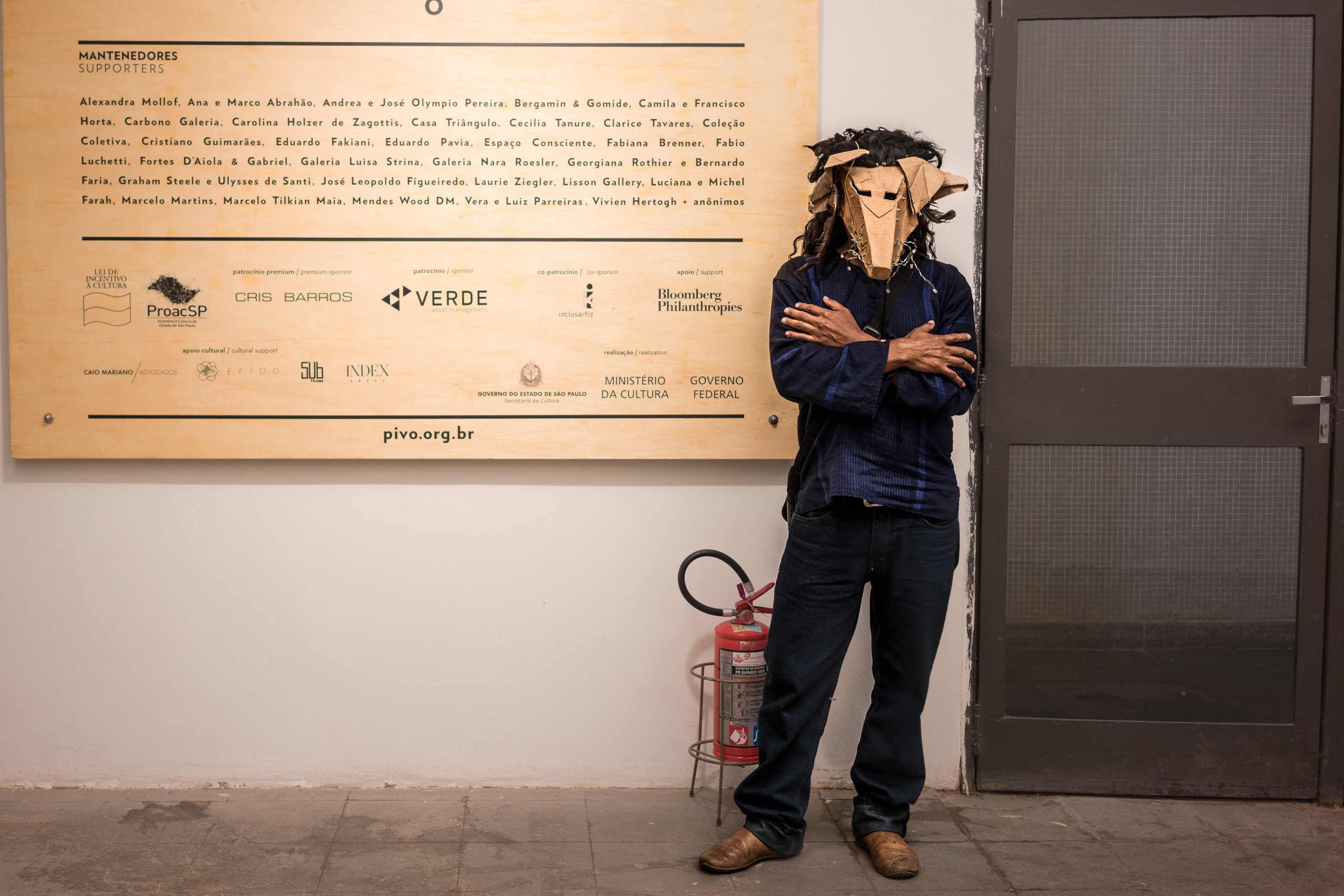
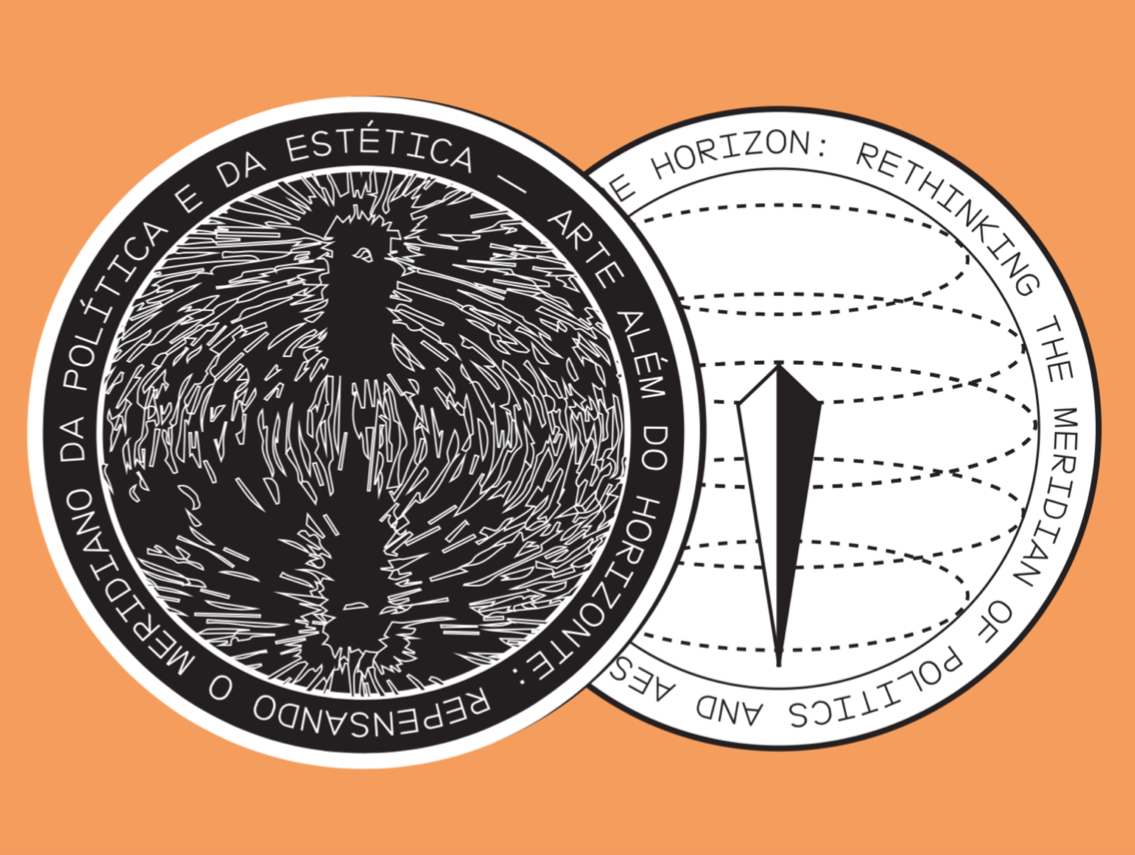
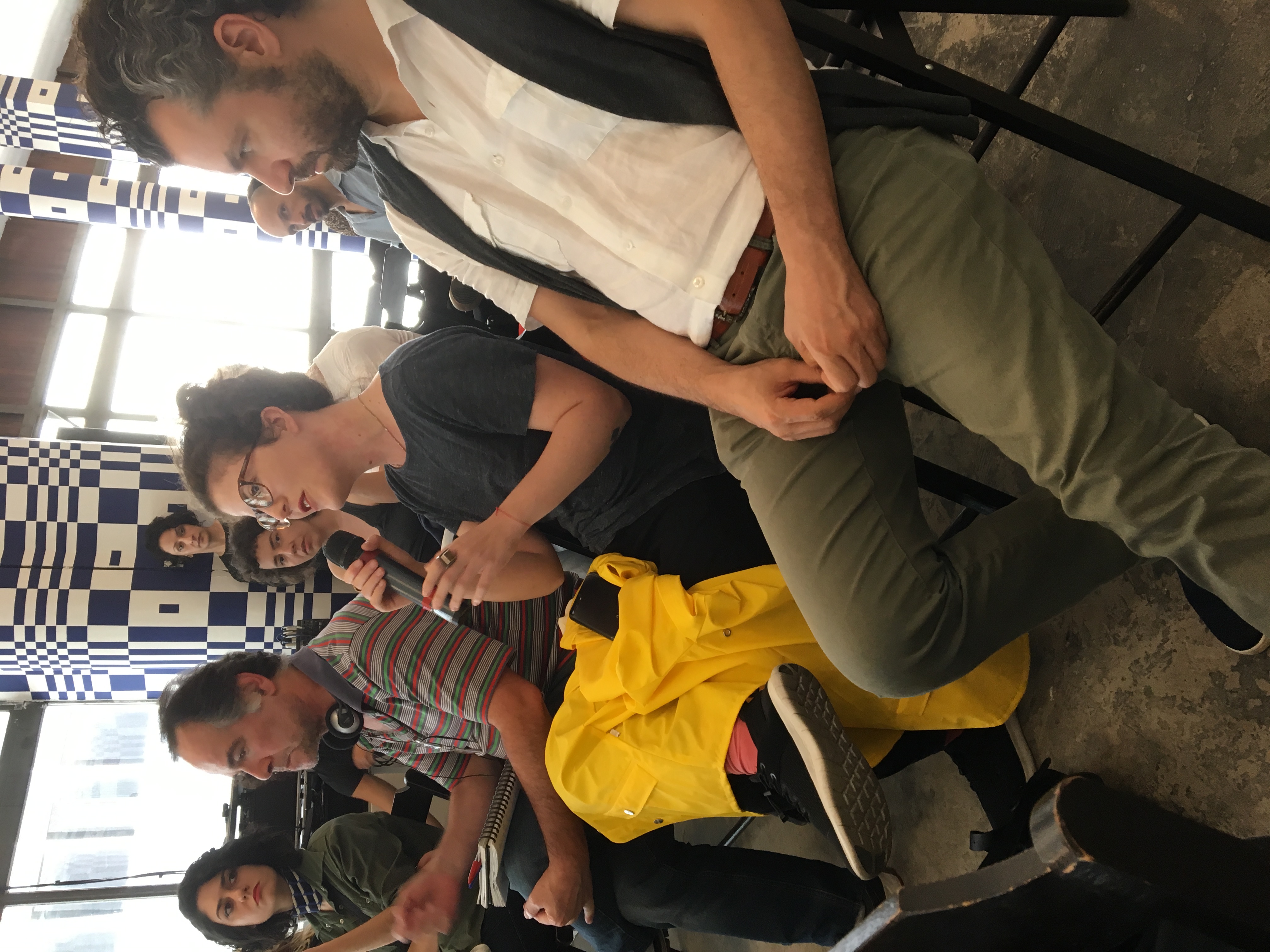
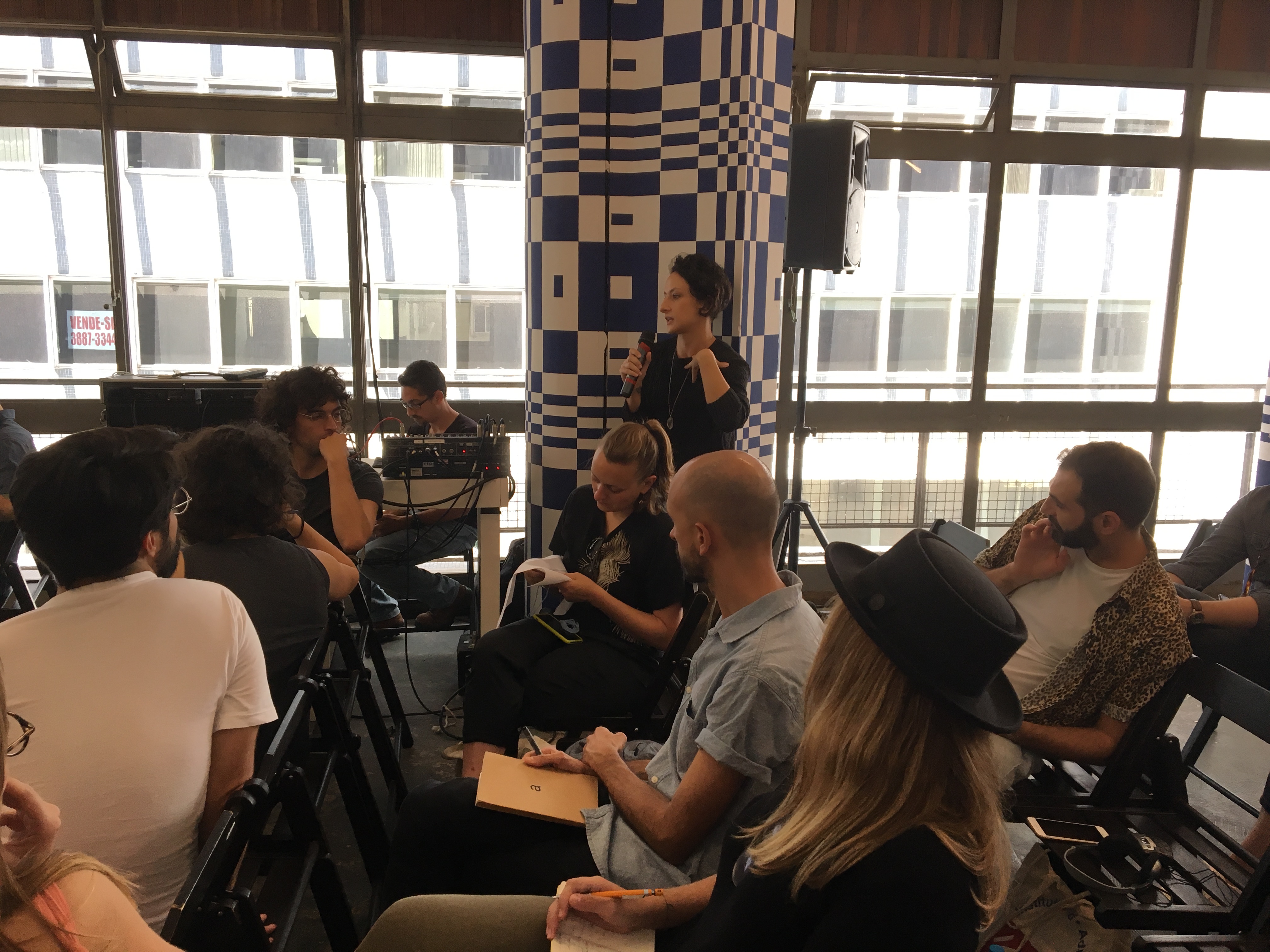
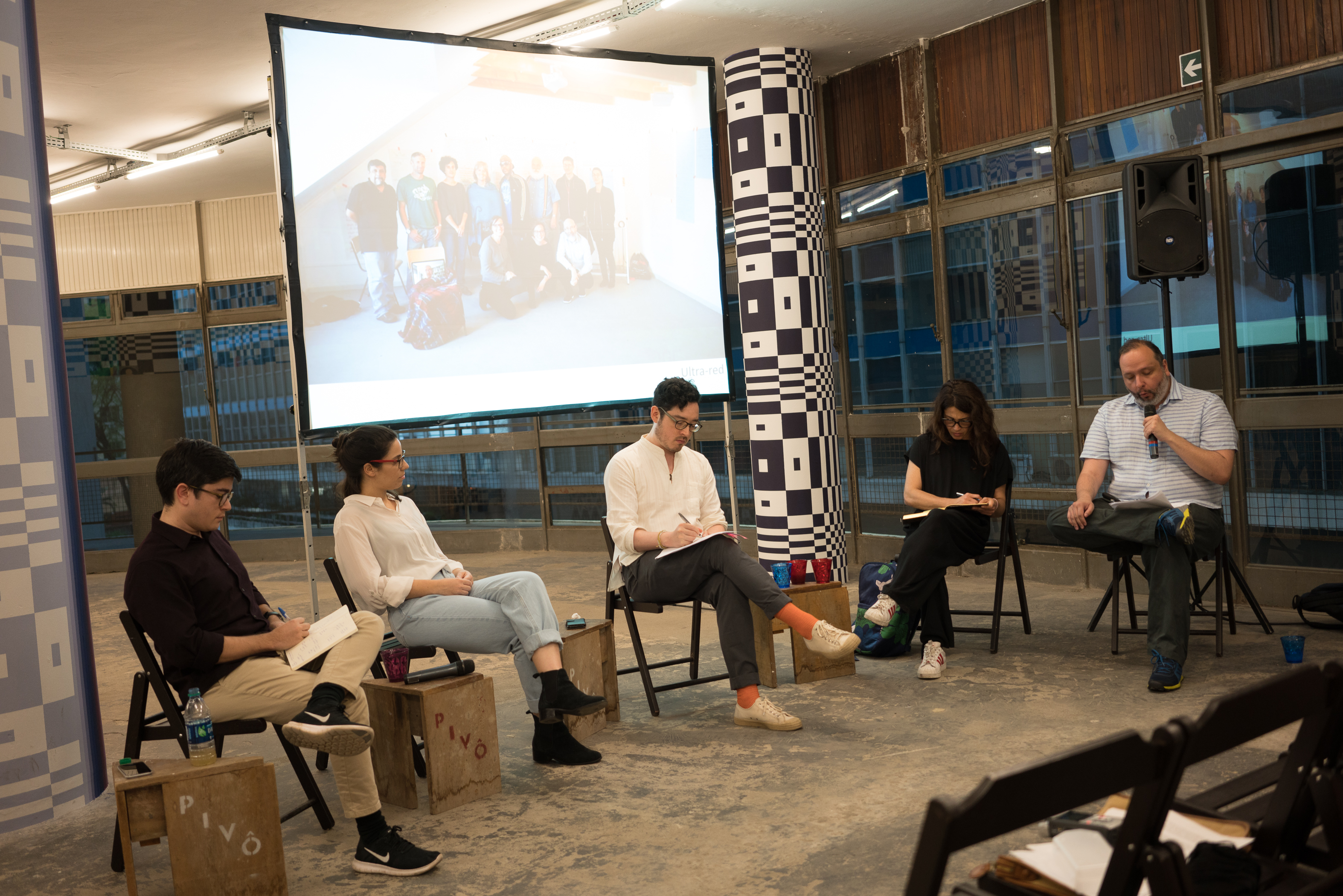
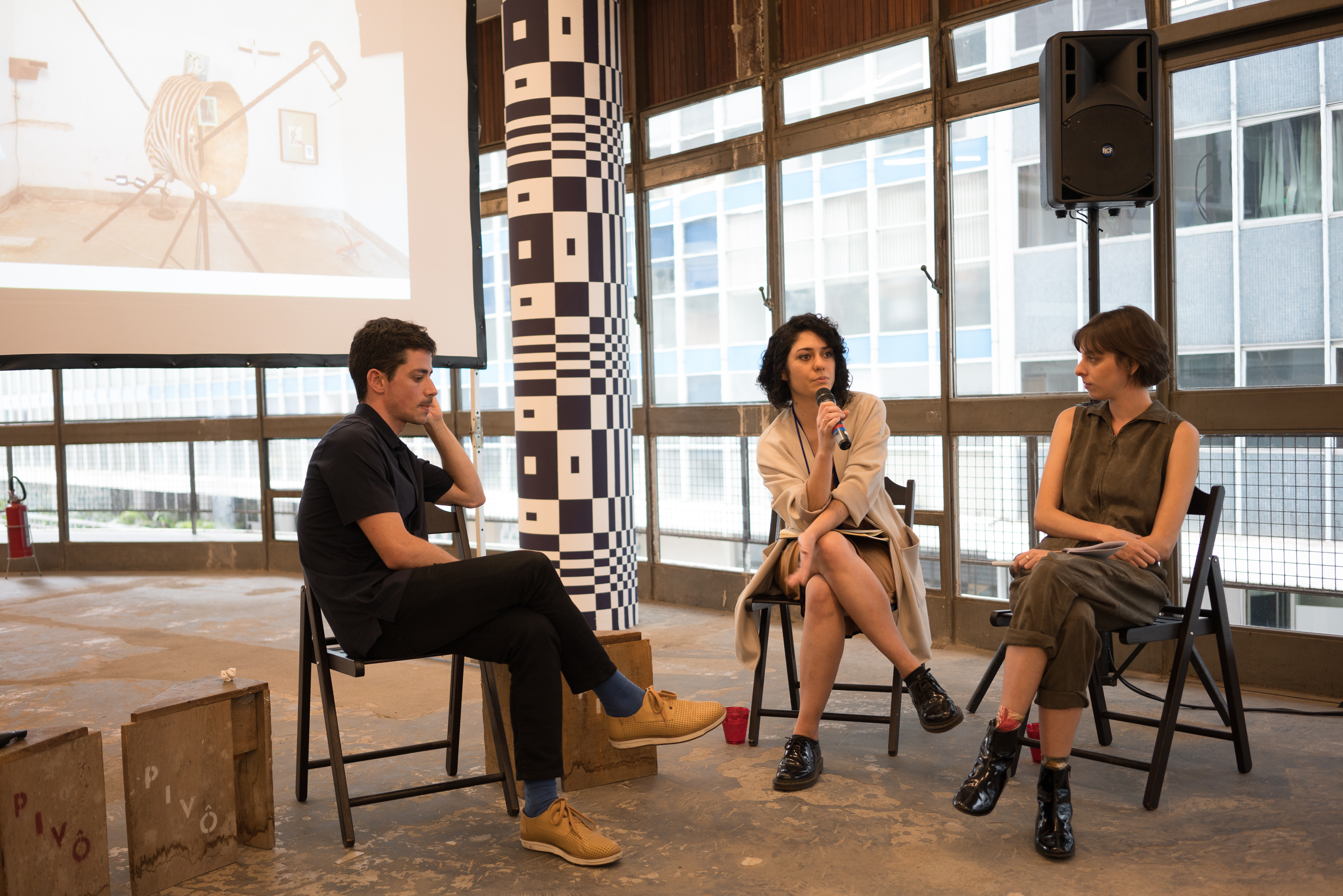

Art beyond the horizon
Rethinking the meridian of aesthetics and politics
29-30 Sep 2018 1pm-7pm
Pivô, São Paulo
Pivô, São Paulo
Art beyond the horizon proposed a critical reflection on the intersections of artistic, aesthetic and political practice to rethink notions relevant to future directions of contemporary art.
The event, organised in partnership with the Goethe Institut São Paulo, and the independent art space Pivô Arte e Pesquisa, aimed to reflect on these issues, encompassing interstitial perspectives, many deriving from spaces of the Global South. In this way, Art beyond the horizon proposed a series of dialogues between artists, curators and academics to navigate an alternate meridian, rereading the compass of contemporary art.
The event started from the premise that in recent years contemporary art has been subject to a series of theoretical and practical incursions from both within and without that call into question its models of practice and the structures that sustain them, the hegemony of a geographically located canon of works and the porous nature of art’s autonomy itself. In both institutional and extra institutional spaces, there has been a proliferation of artistic and curatorial projects that propose public space as a sphere of activity and the artistic work as a post-material experience. Accompanying this shift in focus that gestures towards dimensions of sociality, works that directly challenge the contemporary art systems of hegemonic countries have gained greater visibility, proposing unexpected pathways to engage with traditional architectures and putting forward artistic practice as a means of knowledge production. In parallel, theoretical propositions have emerged that put forward artistic practices as ‘ways of doing’, which intervene in the general order of daily life while also identifying a consequent oscillation between the inevitability of art’s insertion in society and its desire for autonomy. Importantly, these recent directions are intrinsic but also extrinsic: they are situated simultaneously on the inside and the outside of existing paradigms, but even if originating from an exterior position, they still seek to act upon that interior position as a whole. Such transit means that these issues play out in a liminal and contested field, so how might we understand the relationship between artistic practice and activist intervention, particularly with regard to urban space? Do such practices foster new modes of critical and creative thinking in their interaction with dimensions of sociality? How might the reconfiguration of Eurocentric canons be proposed as a result, if that is at all possible? Is it the case that we can make such a division between dependence and autonomy, art and society? And to where do these new directions point, what might lie beyond the horizon of contemporary art in its current incarnation?
With contributions by Wura Ogunji, Jonas Tinius, Laymert Garcia dos Santos, Fernando Palma Rodríguez, Catalina Lozano, Pedro Cesarino, Luiza Crosman, Bruno de Almeida, Isabella Rjeille, Juliana Caffé, Yudi Rafel, André Mesquita and Virginia de Medeiros amongst others.
The event, organised in partnership with the Goethe Institut São Paulo, and the independent art space Pivô Arte e Pesquisa, aimed to reflect on these issues, encompassing interstitial perspectives, many deriving from spaces of the Global South. In this way, Art beyond the horizon proposed a series of dialogues between artists, curators and academics to navigate an alternate meridian, rereading the compass of contemporary art.
The event started from the premise that in recent years contemporary art has been subject to a series of theoretical and practical incursions from both within and without that call into question its models of practice and the structures that sustain them, the hegemony of a geographically located canon of works and the porous nature of art’s autonomy itself. In both institutional and extra institutional spaces, there has been a proliferation of artistic and curatorial projects that propose public space as a sphere of activity and the artistic work as a post-material experience. Accompanying this shift in focus that gestures towards dimensions of sociality, works that directly challenge the contemporary art systems of hegemonic countries have gained greater visibility, proposing unexpected pathways to engage with traditional architectures and putting forward artistic practice as a means of knowledge production. In parallel, theoretical propositions have emerged that put forward artistic practices as ‘ways of doing’, which intervene in the general order of daily life while also identifying a consequent oscillation between the inevitability of art’s insertion in society and its desire for autonomy. Importantly, these recent directions are intrinsic but also extrinsic: they are situated simultaneously on the inside and the outside of existing paradigms, but even if originating from an exterior position, they still seek to act upon that interior position as a whole. Such transit means that these issues play out in a liminal and contested field, so how might we understand the relationship between artistic practice and activist intervention, particularly with regard to urban space? Do such practices foster new modes of critical and creative thinking in their interaction with dimensions of sociality? How might the reconfiguration of Eurocentric canons be proposed as a result, if that is at all possible? Is it the case that we can make such a division between dependence and autonomy, art and society? And to where do these new directions point, what might lie beyond the horizon of contemporary art in its current incarnation?
With contributions by Wura Ogunji, Jonas Tinius, Laymert Garcia dos Santos, Fernando Palma Rodríguez, Catalina Lozano, Pedro Cesarino, Luiza Crosman, Bruno de Almeida, Isabella Rjeille, Juliana Caffé, Yudi Rafel, André Mesquita and Virginia de Medeiros amongst others.
auflynn [at] arts.ucla.edu
Alex Ungprateeb Flynn is an Associate Professor at the Department of World Arts and Cultures/Dance, University of California, Los Angeles. Working as an anthropologist and curator, Alex’s practice explores the intersection of ethnographic and curatorial modes of enquiry. Researching collaboratively with activists, curators and artists in Brazil since 2007, Alex explores the prefigurative potential of art in community contexts, prompting the theorisation of fields such as the production of knowledge, the pluriversal, and the social and aesthetic dimensions of form.